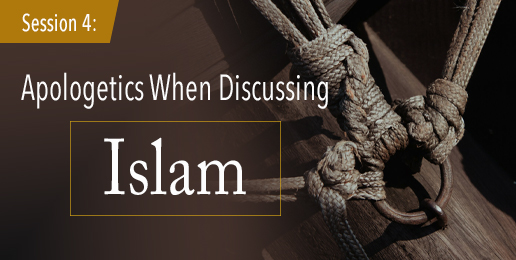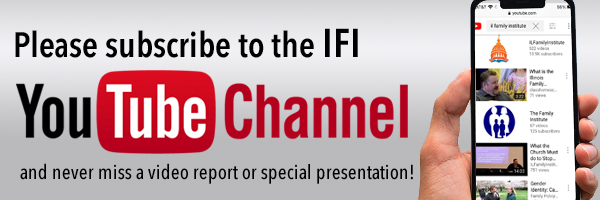
Written by David E. Smith
In this session, Josh Blair equips Christians to engage Muslims with truth and love—understanding common objections, presenting clear biblical responses, and using the “Islamic Dilemma” to expose the internal contradictions within Islam’s own scriptures.
Please note that this recording was made shortly after the assassination of Charlie Kirk in Utah. Mr. Blair appropriately opens with brief remarks addressing that tragedy before beginning his teaching.

I. Common Muslim Objections to Christianity
-
“Jesus never claimed to be God.”
-
Jesus’ use of “Son of Man” (Mark 14:61-64; Daniel 7:13-14) was a direct claim to divinity recognized by the Jewish high priest as blasphemy.
-
Jesus also claimed divine titles (“I Am”), unity with the Father, pre-existence before Abraham, and power reserved for God alone.
-
-
“Christians worship three gods.”
-
The Trinity means one God in three distinct Persons: Father, Son, and Holy Spirit.
-
Scripture affirms monotheism (Deut 6:4), the deity of each Person (John 1:1; Acts 5:3-4), and their distinction (Matt 28:19; Luke 3:21-22).
-
-
“Muhammad is prophesied in the Old Testament (Isaiah 42).”
-
The “servant” in Isaiah 42 refers to Israel—not Muhammad—confirmed by verse 19, which identifies the servant as God’s covenant people.
-
-
“The Bible is corrupted; the Qur’an is pure.”
-
Manuscript evidence: 66 books written over 1,600 years, with 5,800+ Greek NT manuscripts and textual stability confirmed by the Dead Sea Scrolls.
-
Dating: Luke–Acts precede A.D. 70 (temple destruction), Corinthians in the 50s, Mark & Matthew even earlier.
-
Transmission: Bible = free transmission (many witnesses confirming text); Qur’an = controlled transmission (one official version under Caliph Uthman).
-
Historical record shows multiple early Qur’an versions (111–116 surahs), some branded “deceitful” by Muhammad’s own companions.
-
II. The Islamic Dilemma
Formal Argument
-
The Qur’an affirms the Torah & Gospel as divine revelation.
-
It instructs Muslims to consult those Scriptures for truth.
-
Yet it contradicts them on major doctrines (e.g., Jesus’ deity and crucifixion).
Therefore, the Qur’an is self-contradictory and false.
Supporting Details
-
Surahs 3:3-4; 5:44-47; 10:94 affirm and command reliance on earlier Scriptures.
-
The Qur’an contradicts the Bible historically (Samaritans in Moses’ day, Mary/Miriam confusion) and theologically (denying the crucifixion).
-
Non-Christian historians (Josephus, Tacitus, Talmud writers) confirm Jesus’ crucifixion as historical fact.
-
If the Bible were corrupted, then Allah either failed to preserve His word or endorsed a corrupted text—both make the Qur’an false.
III. Evangelism Principles for Muslims
-
Lead with love and relationship—conversion means personal cost and possible ostracism.
-
Use the Bible as your primary tool (“the gospel is the power of God to salvation” – Rom 1:16).
-
Ask questions as Jesus did: “What do you mean by that?” and “How did you come to that conclusion?” invite dialogue over debate.
-
Sample conversation questions: “Who is Jesus to you?” “Can anyone know they are going to heaven?” “What does sin mean to you?”
-
Key truths to emphasize:
-
God is love (1 John 4:8)—a concept absent from Islam.
-
Salvation is by grace through faith in Christ, not works (Eph 2:8-9).
-
Holy living flows from gratitude, not fear.
-
Conclusion
Christians should engage Muslims confidently and compassionately—anchored in Scripture, guided by the Holy Spirit, and equipped with sound apologetic tools like the Islamic Dilemma. Truth and love together reveal that the Bible is trustworthy and Jesus Christ is Lord of all.
Learn more:
| Session 1 | Session 2 | Session 3 |
| Session 4 | Session 5 | Session 6 |
| Session 7 |






















